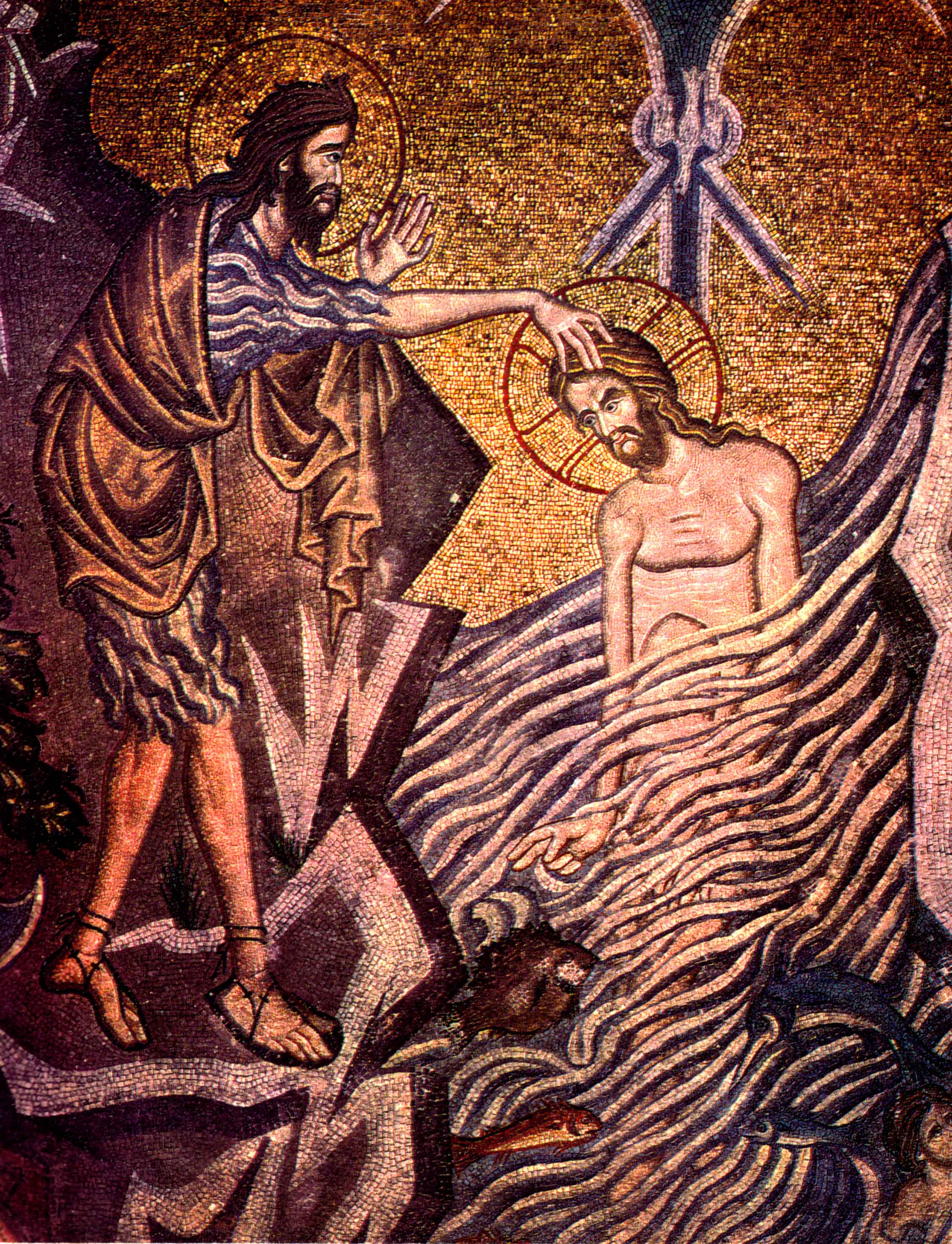To understand the meaning of the waters of baptism in scripture, we must for a moment forget our modern mental picture of a baptism; the pouring of water over the baby’s forehead, the parents and godparents looking on lovingly. Water for the Hebrews was a symbol of great violence and destruction. They lived in dry places, in which rainstorms deluged everything. They said, “Water can put out fire, but who can stop a flood?” Imagine being washed away by a flood in the darkness of night in the days before modern lighting.
Before the Creation, there was darkness, surging water everywhere. Water equalled chaos for the Hebrews. But in the beginning, “the Spirit of God hovered over the waters.” Through the Spirit, God separates land from sea. Out of chaos and lifelessness, God creates life by rolling back the power of the waters. There is also the great Flood. God uses the destructive power of water to wash away the sin of the world, and at the same time to save those in the Ark; Noah, his family and the animals. The first sign of God’s relenting is the return of the dove, bearing an olive twig in its beak. When the Israelites crossed the Red Sea, from slavery to freedom, water was the instrument of both the destruction of God’s enemy, and the salvation of those whom he loved. Lastly, there is Joshua’s damming up of the river Jordan, which allowed the Israelites to cross over into the land that God had promised them.
 All this is behind Jesus’ going down into the waters of the Jordan to be baptised. Out of the waters Jesus emerges, bringing new life and a new creation, just as in the beginning, God brought life out of the watery chaos when he created the heavens and the earth. The waters which Jesus makes holy through his baptism, are a Flood of tremendous force that destroys sin and gives eternal life to the one who is baptised. By passing through the waters of baptism, Jesus re-enacts the passage through the Red Sea, a passage from the slavery of sin, to freedom. Baptism becomes for the Christian a new Crossing of the Red Sea, a passing from death to life, while the might of the evil one is destroyed in those same waters. And Jesus crosses the Jordan in the same way as the Israelites entered the Promised Land for the first time. He comes to the Promised Land, to the Chosen People, to bring them the Good News of their salvation. But whereas Joshua brought the Israelites to their promised land, Jesus, “the Way, the Truth and the Life,” brings the Promised Land, heaven, to them.
All this is behind Jesus’ going down into the waters of the Jordan to be baptised. Out of the waters Jesus emerges, bringing new life and a new creation, just as in the beginning, God brought life out of the watery chaos when he created the heavens and the earth. The waters which Jesus makes holy through his baptism, are a Flood of tremendous force that destroys sin and gives eternal life to the one who is baptised. By passing through the waters of baptism, Jesus re-enacts the passage through the Red Sea, a passage from the slavery of sin, to freedom. Baptism becomes for the Christian a new Crossing of the Red Sea, a passing from death to life, while the might of the evil one is destroyed in those same waters. And Jesus crosses the Jordan in the same way as the Israelites entered the Promised Land for the first time. He comes to the Promised Land, to the Chosen People, to bring them the Good News of their salvation. But whereas Joshua brought the Israelites to their promised land, Jesus, “the Way, the Truth and the Life,” brings the Promised Land, heaven, to them.
In the waters of baptism, the Holy Spirit has surged through us like a torrent, blasting away the stain of sin, restoring us to lost innocence and new birth in Christ, whose image has been indelibly imprinted upon us. As we contemplate today his Baptism in the Jordan, may he be at work within the hearts of each one of us; and may he bring that image of himself to fullness within each one of us. To him be glory for ever and ever.
Amen.
Fr. Phillip
